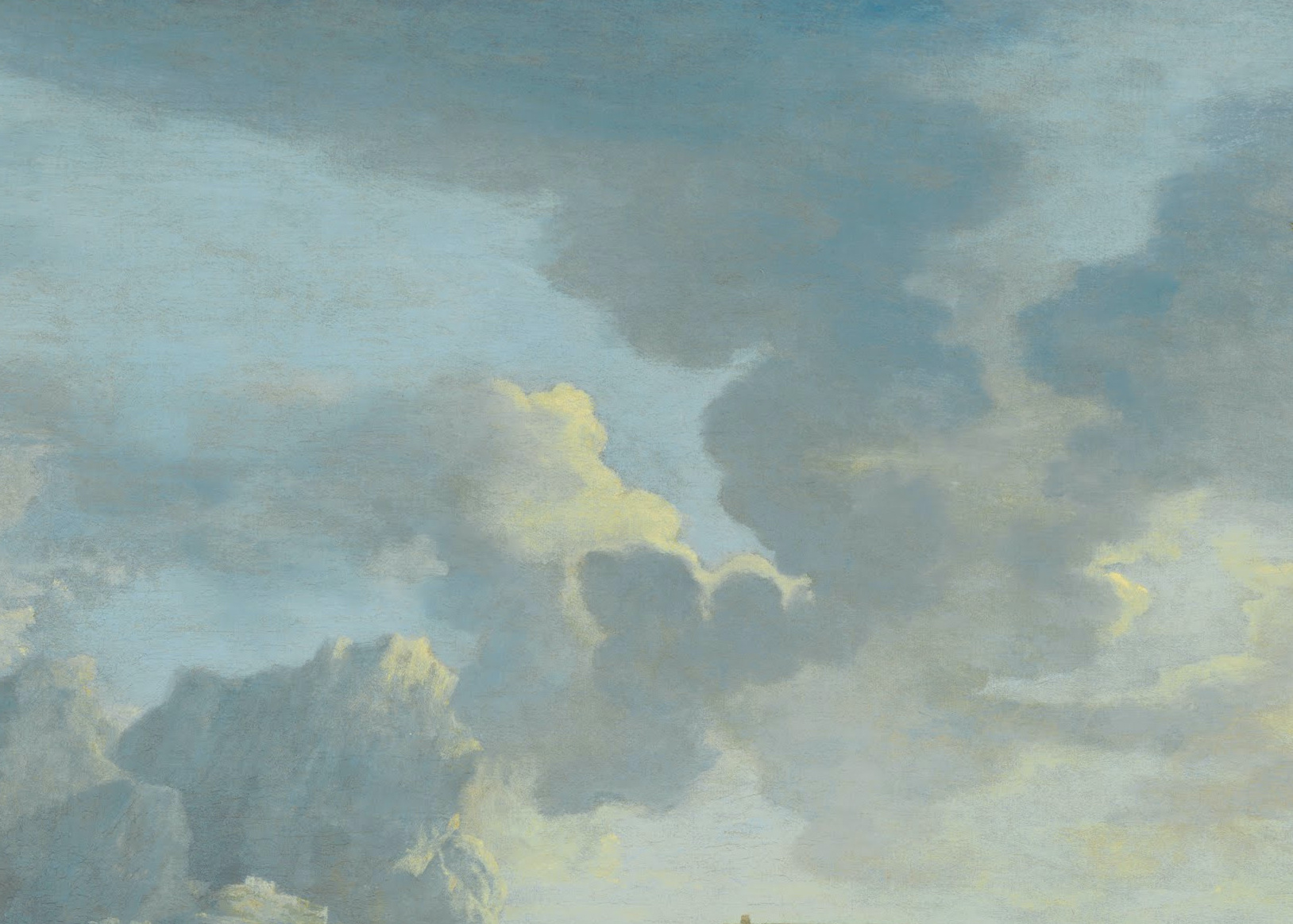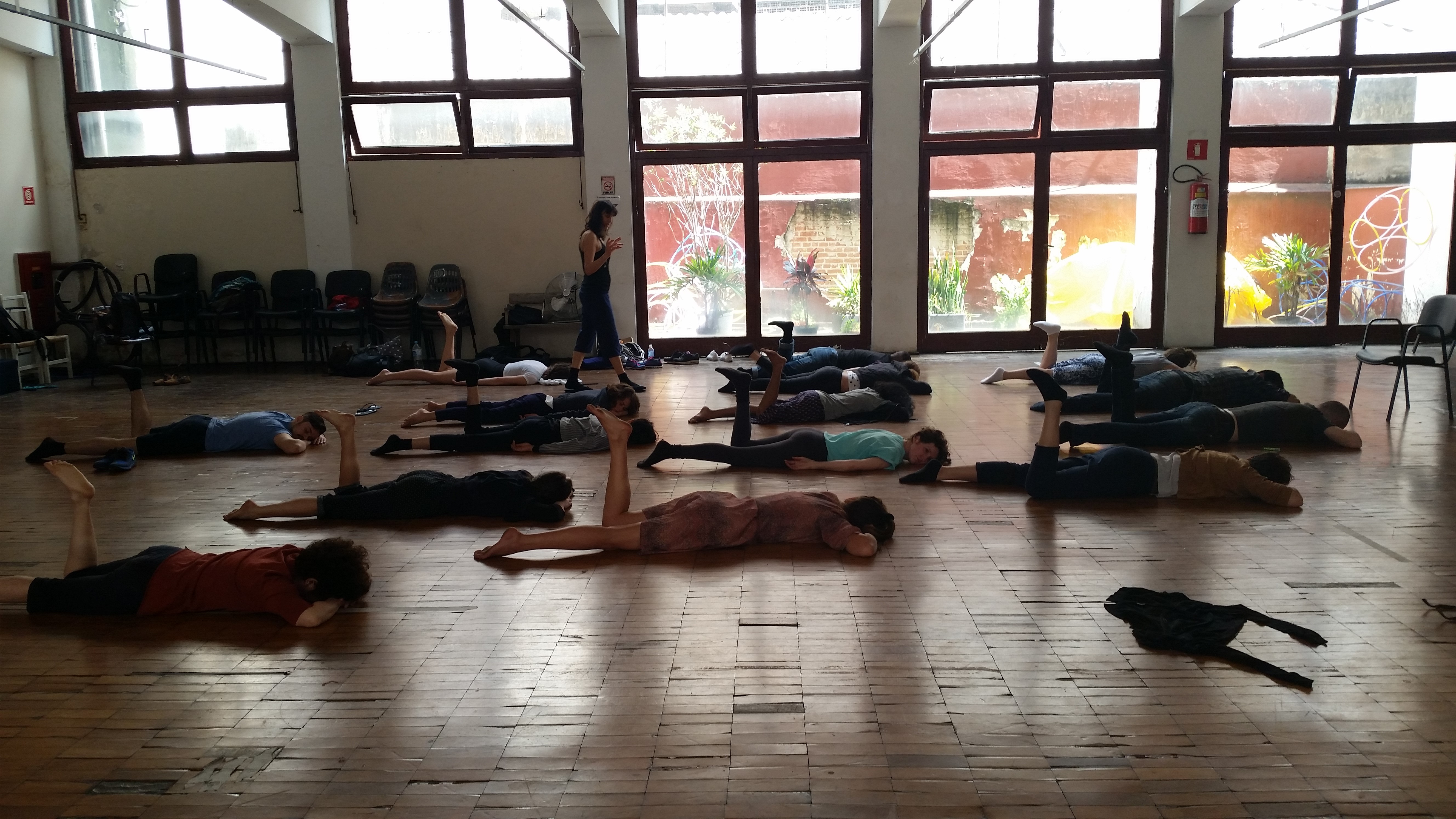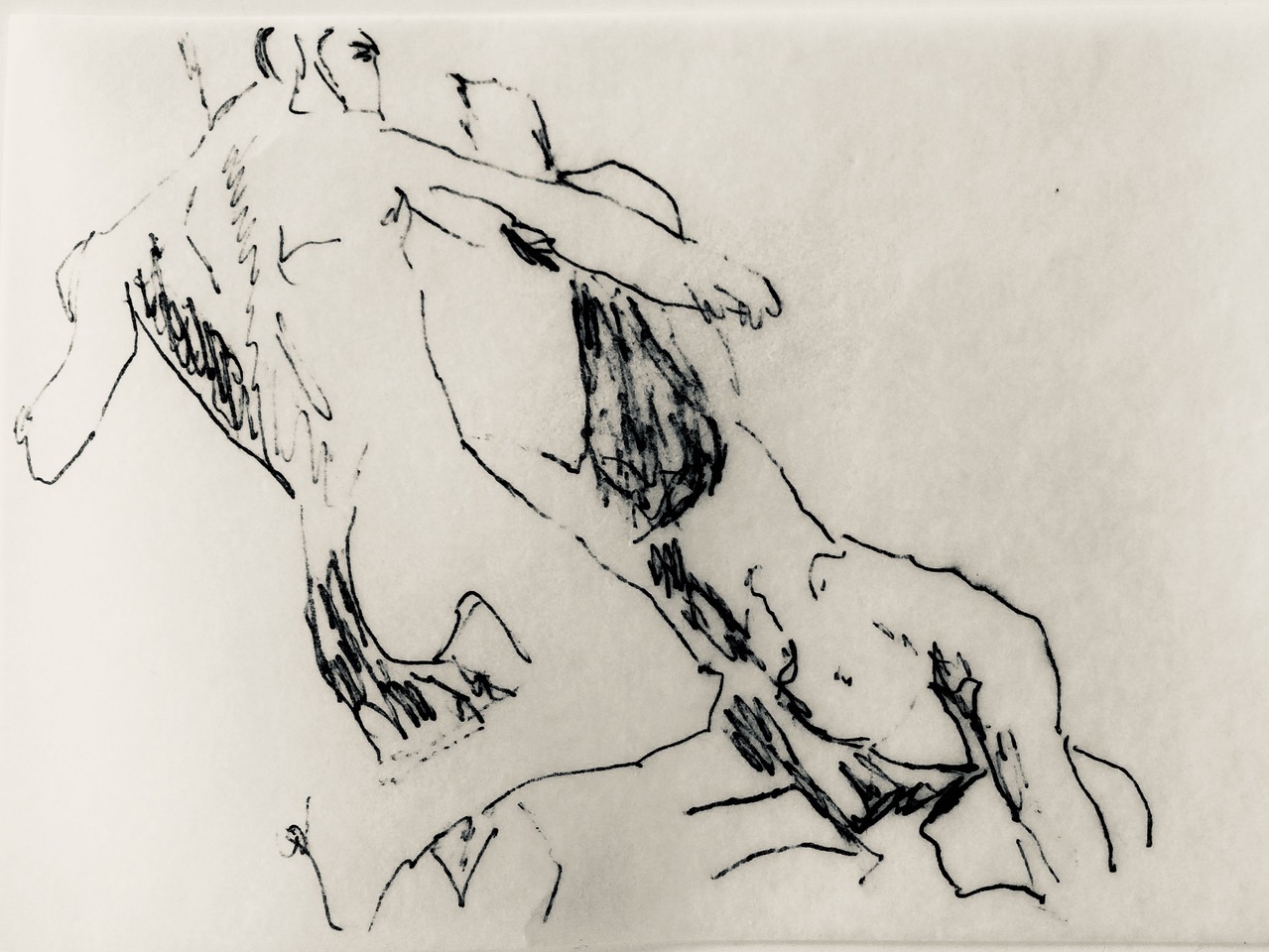Doctorate in the Arts
ARIAS advises post-MA researchers on the possibilities for doctoral degrees in the ARIAS network, usually on the basis of a written research proposal. ARIAS can’t appoint doctoral degree positions.
On this page:
> What is doctoral research in the arts?
> Possibilities for 3rd cycle trajectories
> Further reading
What is doctoral research in the arts?
Definitions of what a doctoral degree (PhD, or alternative degrees like Creator Doctus) in the arts is, and understandings on how it should be implemented and assessed, still widely differ since it got introduced in Europe by the Bologna declaration in 1999.
The definition ARIAS is using is as follows:
A doctoral degree in arts is a degree awarded based on research conducted through the arts – by the means of art / art practice – on the highest level. It is an artistic research doctorate that gives a remarkable and extraordinary contribution to the field of art, and proposes (a) different insight(s) to existing ways of knowing.
Artistic Research
Research conducted ‘through the arts’ means that an artistic discipline is used as the field that provides ways of thinking and knowing; using the art practice’s methods, tools, materials, and so forth to do research. Artistic Research is an extraordinary realm of research particularly suited to engage with a diversity of subject-fields and thus for addressing inter- and trans-disciplinary issues. Doing Artistic Research is therefore concerned with experimental processes of knowing and their articulation.
Ways of knowing
Artistic Research brings with it an embrace of particular ways of knowing and of thinking about knowledge. It is therefore more about enacting processes of knowing than it is about the accumulation of knowledge. It uses a diverse range of approaches and methods from for example science, arts, and social embodied practices. As such artistic research problematizes the demand for knowledge production by entering and generating different ways of knowing as spaces for thinking.
Possibilities for 3rd cycle trajectories
As mentioned above, ARIAS does not have its “own Doctorate-in-the-Arts trajectory”, although it acts in the role of mediator in between WO (Academic Education) and HBO (Higher Professional Education) institutions within the ARIAS network for post-MA researchers interested in obtaining a doctoral degree in the arts. Below is an overview of different trajectories for: pre-PhD’s and third cycle trajectories; PhD’s with artistic component; and doctoral degrees in the arts, within the ARIAS network.
To obtain a doctoral position the general requirements follow:
1. Have an MA-degree (exceptions can be made – check the Universities promotion regulations.)
2. Write a +- 1000 word summary of a research proposal.
(See for example the ASCA guidelines).
3. Find a ‘promoter’ (supervisor) willing to supervise.
4. Be accepted by one of the research schools or centers of the University, for which a PhD-proposal has to be prepared following the rules dependent on the chosen research school.
Tip → Ask the supervisor about their understanding of a doctorate in the arts. It’s crucial that the promoter is willing to stand behind the research and help make way for it in the institution. Especially when bringing in artistic methods into academic contexts; specific conditions are needed and some institutional ideas challenged.
WO Partners
The University of Amsterdam and VU Amsterdam do not offer practice-based doctoral degrees in the arts as defined above. Enrolling into a promotion trajectory at either of these universities demands the writing of an academic dissertation. It is however possible to set up a connection with one of the art academies and give shape to a PhD with an artistic component. We are here to think along about the particular conditions your research might need and mediate in making suitable connections within our network.
The possibilities at UvA and VU differ:
University of Amsterdam | UvA
Since 2017 at the University of Amsterdam, it is possible to obtain a PhD degree with an artistic component which asks the candidate to write an academic PhD dissertation and to also produce a “high quality artistic performance”. An advisor from the field of arts can be added to the commission on a motivated request. In the promotion regulations of the UvA a supplementary regulation on ‘Doctorate in Arts’ can be found that describes the conditions further in detail.
Find here the download links for the Doctorate Regulations.
Find here more information about doing a PhD at the UvA.
Find here step-by-step overviews from admission to completion.
Find here information on obtaining a position with or without employment.
VU Amsterdam | VU
In 2019 the VU Amsterdam adapted their PHD-regulations on two points, with regards to practice-based components as part of the academic doctorate.
1. The doctoral thesis can be combined with an artistic or technological component included in the theses as being crucial to knowledge development; one could think of an exhibition, dataset, or artistic work. The commission acknowledges this as part of the overall doctoral thesis and reviews it as such, the artwork will thus not be examined separately as the product of research in and of itself. (See article 16.2 of their promotion regulations.)
2. Usually a commission consists of members that have obtained the PhD title themselves. On a motivated request of your promotor the dean can decide to add an advisor without such title to the commission because of the needed expertise they bring: from for example the arts, the industry, civil society.
(See article 13.7 of their promotion regulations).
Find here general information about doing a PhD at the VU.
Find here the promotion regulations of the VU (in Dutch).
Find here info about the Graduate School of the Humanities.
Interdisciplinary research schools and LAB’s at the VU:
Hybrid Forms
CLUE+
HBO Partners
Within the Dutch educational system art schools are not considered Universities, they can’t grant PhDs. Gerrit Rietveld Akademie (GRA), Amsterdam University of the Arts, (AHK), and Amsterdam University of Applied Sciences (HvA) offer higher professional education in the arts and applied sciences. These knowledge institutions have the potential to be collaboration partners in setting up a doctoral degree in the arts between WO and HBO. ARIAS assists potential PhD candidates in creating a connection between such institutions. On some occasions these HBO’s offer other interesting third-cycle education (meaning studies on doctoral level) trajectories or research programmes – listed below.
Find an overview of research groups (lectoraten) in the academies here.
Gerrit Rietveld Academie | GRA
Creator Doctus (CrD)
Creator Doctus (CrD) is set up by the Gerrit Rietveld Academie as a pilot for a whole new doctoral degree in the arts (equal to but not the same as PhD*). It is a three-year research trajectory within the so-called third cycle of higher education for doctorate embodied artistic research. The promotion results in a series of artworks that answer research questions formulated by the artists within the context of a framework provided by a commissioning societal partner. At the end of the three years the results are presented to an evaluation committee, the involved partners and the public. If judged sufficient the artist will be awarded the title Creator Doctus (CrD). The title will serve to help promote the degree of profession and skill of the artist. To obtain European recognition the title is developed in collaboration with several European partners.
Read more about CrD here and here.
Amsterdam University of the Arts | AHK
docARTES
docARTES is an international inter-university doctoral programme for practice-based research in musical arts, designed for musician-researchers. The Conservatorium of Amsterdam (part of AHK) participates in docARTES. Read more about admission to docARTES here.
DAS Research | THIRD – 3rd Cycle
DAS Graduate School (AHK) houses several MA programmes besides a department for research for post-graduates called DAS Research. DAS Research leads a 3rd Cycle programme called THIRD that facilitates artists interested in pursuing post-graduate education. Since 2016, THIRD has hosted cohorts (research groups) of each seven fellows exploring research opportunities for artistic research at the PhD or PhD equivalent level. This peer-to-peer learning environment takes place over the course of 3 years with four quarterlies (meetings of 4 days) per year. Currently, few programmes in Europe cater to performing arts research in higher education. Though DAS Graduate School cannot bestow a terminal degree of PhD yet, they support performing artists who wish to expand their knowledge(s) by supplementing PhD candidatures in the Netherlands and abroad. The aim of the THIRD is to prepare, coach, and facilitate individual artists working in or in relation to the performing arts in articulating a long-term research project for enrollment in a university PhD or Research Fellowship programme. Read more about DAS Research / THIRD here.
Amsterdam University of Applied Sciences | HvA
The HvA is one of the largest schools of the Benelux, connected to ARIAS through its faculty of Digital Media and Creative Industry (FDMCI). The research groups (lectoraten) related to design, digital media, and visual culture based there are vivid and engaged actors in our network. These lectoraten bundled in CREATE-IT, the department for applied research, work together with other in-school Labs and external partners from different industries. After being taken on as a doctoral candidate by a supervisor at one of the universities, PhD researchers can be co-promoted by the HvA and hosted within their research department.
Find more information in our network & research group overview.
Find more information about CREATE-IT.
Further Reading
For further reading on artistic research we refer to our library.
Specifically recommended:
The E-flux article “The Academy is Back: On Education, the Bologna Process, and the Doctorate in the Arts” by Dieter Lesage (2009), for a more historical and contextual understanding of doctoral degree developments for the arts (in relation to the Bologna agreement).
“ANTI THESIS” by Janneke van Leeuwen (2020), an insightful view of a recently promoted researcher on embedded artistic research.
Find an overview of research groups on our network page.
Tip → This page aims to guide you in your orientation and consideration of what is best suitable for the kinds of research you want to conduct. Ask yourself if doctoral research – both artistically and scientifically – is actually what you want to be busy with for a longer period of time (3 – 4 years at least). Maybe there is an answer to doing artistic research as either a PhD at one of the Universities in collaboration with an art HBO, or rather in another form or degree at one of the alternative routes.
In exploring possibilities and creating your own way, stretching the limits of how research is thought, you help pave the road for others that come behind. At ARIAS we help you to try and find those new possibilities. Doctoral degrees in the arts ‘are young’, yet we remain hopeful for the future in that exciting and innovative ways are developing through our collaborative efforts.
Left with questions after reading this page? Please contact us!
ARIAS focus in on Amsterdam. If you want to make a connection between one of our partner’s institutions and another Dutch knowledge institution, the platform kunst = onderzoeks provides a shortlist of third cycle options. If you want to connect with an international partner refer to this overview by ELIA is a good start. See also the Artistic Doctorate in Europe website for more info, case studies, and insights on research other possibilities.
Creator Doctus
DAS Research / THIRD
Hybrid Forms
Left with questions after reading this page? Please contact us!






